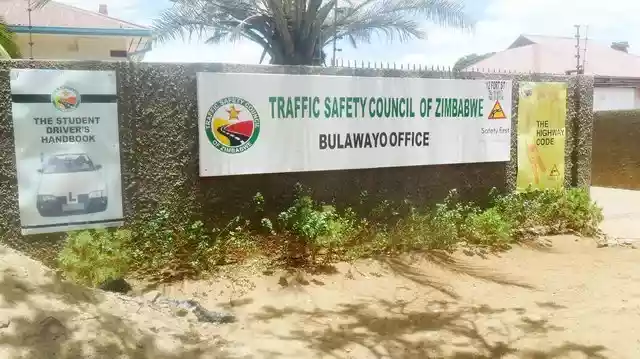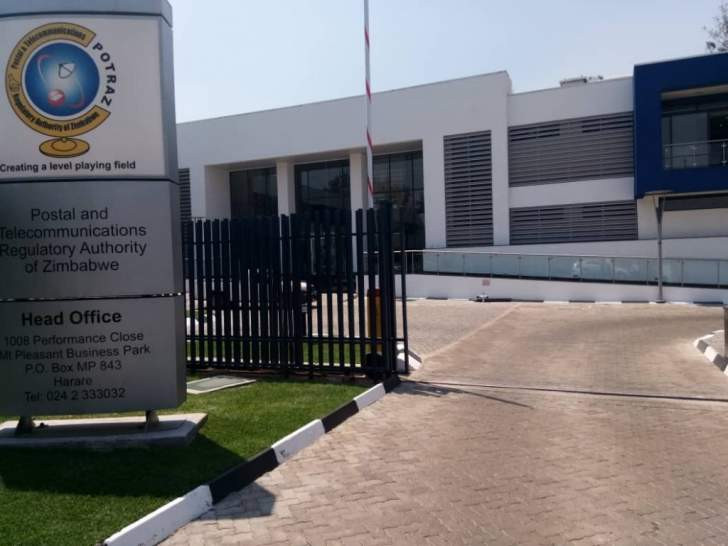
CLIMATE change issues have taken centre stage globally as countries try to mitigate their effects. Zimbabwe is one of the countries putting in place measures to deal with climate change effects on the environment through various projects.
However, the country is caught in between implementing and monitoring climate change measures, especially in the mining and tobacco farming sectors where there is high pollution of the environment.
The country needs foreign currency to effectively implement climate change mitigation measures, especially in mining and tobacco farming, which are the major drivers of environmental degradation and deforestation.
Environment Africa executive director Paradzayi Hodzonge (PH) spoke to NewsDay senior reporter Melody Chikono (ND) about climate change mitigation measures that can be successful in Zimbabwe if government forces investors in the mining and agricultural sectors to take responsibility for rehabilitating the environment. Below are excerpts of the interview.
ND: May you kindly take us through what Environment Africa is as well as its mandate.
PH: Environment Africa is a regional non-governmental organisation (NGO) with its head office in Zimbabwe and offices in Zambia, Malawi and Mozambique. We are mainly an NGO working on environmental issues, which include conservation activities of natural resources and also supporting agricultural activities that have conservation connotations in them. We are also involved in waste management activities and non-timber forestry utilisation and renewable energies.
ND: What projects are you currently running in Zimbabwe?
PH: We are currently running three projects. One is in Mbire district, which is looking at renewable energy. There, we are supporting the construction of bio-digesters, the utilisation of energy-saving stoves. We are also supporting the utilisation of solar energy in rural institutions like clinics.
- Chamisa under fire over US$120K donation
- Mavhunga puts DeMbare into Chibuku quarterfinals
- Pension funds bet on Cabora Bassa oilfields
- Councils defy govt fire tender directive
Keep Reading
In Guruve, we also have another project which looks at conservation agriculture, utilisation of renewable energies, and biogas per se. We are also looking at the use of non-timber forestry products and afforestation projects in Guruve.
We are also implementing projects in two districts of Masvingo and two districts of Mutare. In these two provinces, our major focus is on environmental preparedness in rural communities in the face of disasters where we are looking at how people can survive in case of a drought.
We are looking at the utilisation of underground water, the construction of water reservoirs, and the construction of structures that conserve water within the fields, environmental management and conservation of environmental rights in the communities as well. We are focusing on non-timber forestry products where we are encouraging projects like bee keeping for the communities.
ND: In relation to those projects that you are working on, what can you say about climate change issues in Zimbabwe?
PH: Climate change is a serious challenge in Zimbabwe as you can see the rainfall patterns in the country have changed. We are experiencing patterns where at times the onset of rainfall is late and sometimes the season is short.
Although the expected amount of rainfall might be normal, the seasons are shorter because of the distribution of rainfall which at times does not allow crops to reach maturity. So our projects are actually focusing on adaption by reintroducing crops that are moisture stress friendly, like the transition to rapoko, sorghum and millet as well as other crops like cowpeas.
We are encouraging farmers to focus on how they can cover the little that they get in the fields by encouraging construction of water conversation structures within the field itself where water can be harvested in case the moisture is not adequate.
ND: What are some of the challenges that you are facing in trying to instil climate change knowledge in communities that you are working in?
PH: We face unpredictability of the rainfall patterns, which confuses farmers. At times, the rain is early, or the rainfall is not enough to replant. As an organisation, at times it’s the limited resources for us to implement some of these projects because we can only focus on a few districts, wards and villages at a particular time with the resources that we have.
ND: Speaking of resources, what can you say about the quantum of resources which you deployed towards advancing this cause?
PH: When we look at the country and the districts, the resources we have are a drop in the ocean because the country is too large and there are also larger players. Together we make a huge impact, but as an organisation the resources are limited.
ND: What can you say about participation of women in climate change mitigation projects?
PH: What we have realised, especially when we are implementing adaptation and mitigation measures in relation to climate change, is that women — because they are the ones faced with day-to-day provision of household needs — are faster to respond. They respond faster to new ideas introduced by the organisation.
There is high participation by women, especially to projects related to providing food on the table for their households and generating income for their families. They participate more actively than men in these activities.
ND: How are you handling afforestation efforts and issues to do with government’s thrust to increase revenue in mining and tobacco, where the activities have of late quickened deforestation?
PH: I think there is need to strike a balance between achieving economic development and conserving what we have for the future generation. I think the onus is on government to ensure that investors, especially in mining and farming, take responsibility through land reclamation efforts.
For tobacco producers, contractors should ensure that they provide farmers with resources, such as coal to cure the tobacco.
Government should put in place conditions that force contractors to make sure that contracted farmers do not use timber that is sourced illegally. They should also encourage farmers to have woodlots from which they should be able to get all the wood they need in curing tobacco in the future.
ND: Do you think it’s sustainable?
PH: Well, I think it only needs the political will and political buy-in. I think it’s something achievable as long as we have enough political support which goes down to implementing agents which are government departments.
If the Forestry Commission and Environment Management Agency (Ema) take up their responsibility as policing agents, and ensure that they monitor what is happening in mining and ticket offenders, a lot can be achieved.
Ema emphasises that wherever there are mining activities, the environment must be rehabilitated. So they have to make sure these companies take responsibility.
ND: What plans do you have in the pipeline for land preservation and climate change mitigation?
PH: We are actually looking at coming up with new projects, especially in conserving biodiversity, which is critical in land conservation. We are looking at other ways of conserving biodiversity, where we are considering and encouraging natural pollinators as well as inspiring farmers to reduce the amount of chemicals that they use, be it for controlling weed and also preserving the crops from the fields because some of the chemicals that they use for controlling weeds and pests actually destroy natural pollinators that come in to enhance production on the farms.
We are also looking at trying to grow projects that we have been working on, especially non-timber forestry products utilisation. For example, products like honey have got a huge market, yet you find that very few farmers in isolated districts are actually into apiculture, that is the production of honey, yet we have very conducive conditions for production of honey in this country.
So instead of having a lot of farmers focusing on crop production, others can diversify into products like honey which enable the conservation of forests as well.
- This story was produced by Zimbabwe Independent. It was written as part of the WAN_IFRA Women in News Social Impact Reporting Initiative(SIRI). The content is the sole responsibility of the author and the publisher.
- Follow us on Twitter @NewsDayZimbabwe










